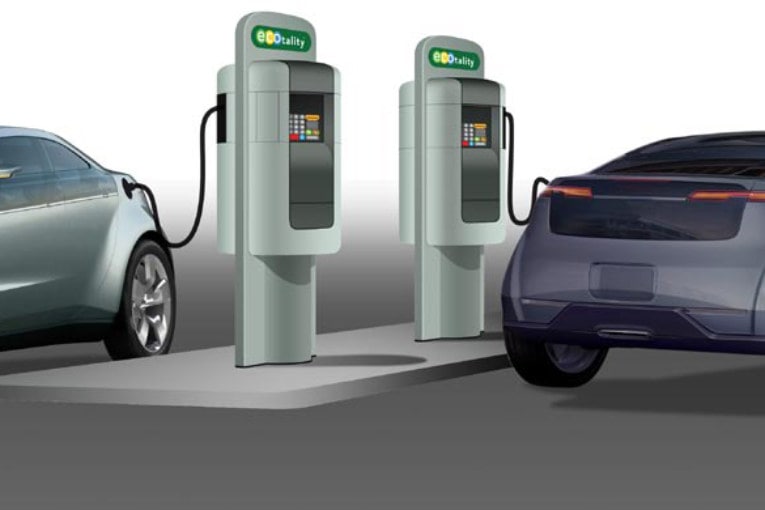Project Report For Electric Vehicle
Charging Station
Introduction
Project report for Electric Vehicle Charging Station is as follows.
The prospect of an electric automobile may scare the ordinary buyer, not because of lack of desire, but out of misunderstanding over how to charge it. That is why it is critical that everyone understands the operation of an electric vehicle (EV) charging station.
An electric vehicle charger is a piece of equipment that provides electricity to electric automobiles. Its primary function is to replenish the battery of an electric vehicle in order to keep it moving.
Although the batteries of the majority of eclectic cars can be charged solely using direct current (DC) power, some EVs feature a charger that converts alternating current (AC) energy to DC and then transmits it to the vehicle’s charging connection.
Project Report Sample On Electric
Vehicle Charging Station
Get Completely Custom Bankable Project Report
Calculating the cost per mile of an electric vehicle is straightforward using a simple calculation. To begin, you must determine the quantity of power used and the vehicle’s efficiency. If power costs $0.13 per kilowatt-hour in your location and the car needs 33 kilowatt-hours to drive 100 miles, the cost per mile is around $0.04. The pace of acceptance and interest in EVs (Electric Vehicles) is growing among customers worldwide.

Automakers’ interest in electric cars is being fueled by increased investment in battery systems and a commitment to environmentally beneficial technologies. Additionally, governments of the nations are developing laws to accelerate the use of electric vehicles.
However, when the predicted rate of EV growth is compared to the equivalent units of power and typical vehicle drive time, it becomes clear that significant expenditures in EV charging stations are required. This charging infrastructure may be installed in residences, businesses, and public locations.
Market Potential Of Electrical Vehicle Charging Station
Expenses

Product Cost Breakup

Reveneue Vs Expenses

Market Trend

The Electric Vehicle Charging Stations Market is estimated to reach $103.6 billion in value by 2028, growing at a CAGR of 26.4 percent between 2021 and 2028. By volume, this market is predicted to increase at a 31.1 percent compound annual growth rate from 2021 to 2028, reaching 11.6 million units.
Government initiatives to promote the adoption of electric vehicles and associated infrastructure, rising demand for fast-charging infrastructure for electric vehicles, increasing prevalence of range anxiety, and increased deployment of EVs by shared mobility operators are the primary factors driving the market’s growth.
Increased research and development in V2G technology, rising use of electric mobility in developing nations, and increased deployment of charging stations by retail MNCs all provide substantial growth prospects for market participants.
The rising popularity of electric cars in recent years, owing to their efficiency and eco-friendliness, has increased the need for fast-charging infrastructure. Globally, there was 2.1 million electric car charging stations in 2019, and by 2030, China, the European Union, and the United States are predicted to have a combined total of 120 million electric vehicles on the road. The overall amount of energy necessary to charge electric cars would approximately double between 2020 and 2030, from 20 billion kilowatt-hours to 280 billion kilowatt-hours.
Electric cars are projected to be used for both urban commuting and long-distance travel. The majority of EVs on the market have a range of fewer than 100 miles and need rapid charging to provide smooth, continuous drive.
Electric mobility stakeholders are continually investing in the research and development of fast-charging technologies. In Europe and China, where dedicated private garages with home charging capabilities are few, public fast-charging stations may become the optimum approach for fostering the widespread adoption of battery-electric cars.
The world’s leading charging system network providers have announced plans to construct fast-charging stations. Fast charging stations can accommodate a greater number of battery-electric cars than public Level 2 charging stations.

